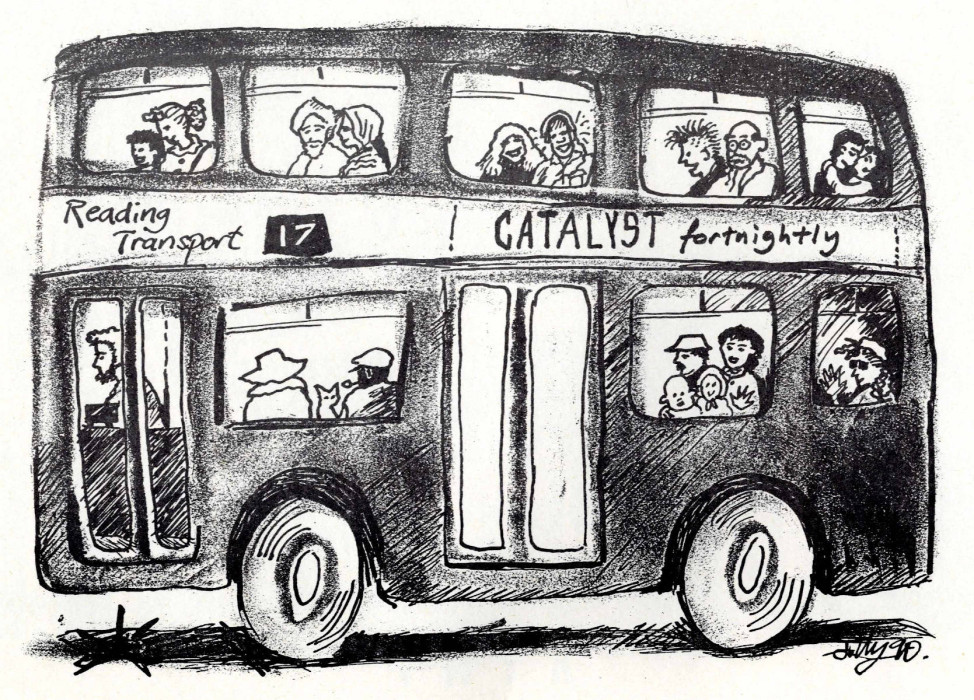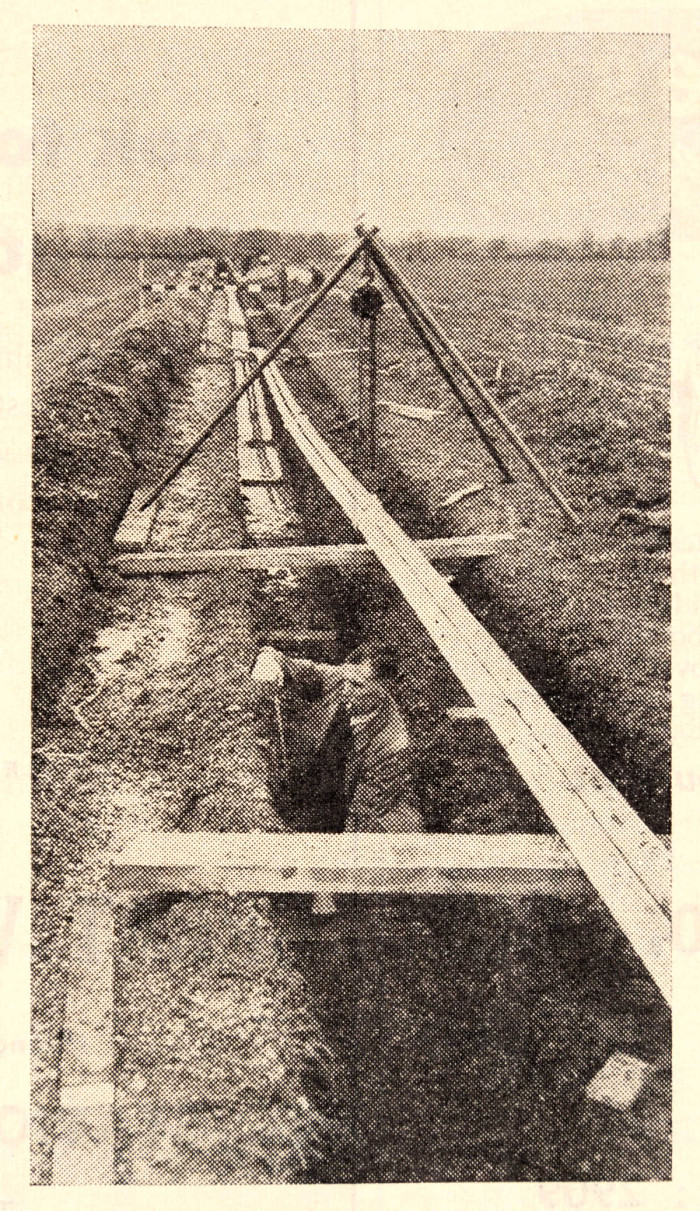Review and Catalyst: A tale of two magazines Part 2
This is the second of a three-part series, where we take a look at two Reading-based magazines and how they reveal much about how local society changed in the second half of the 20th century. If you haven't yet done so, you can read the first part online. As a reminder, The Reading and Berkshire Review (hereafter called the Review) was a monthly magazine produced in 1951, while Catalyst was a non-profit magazine published 1989 and 1991. Both periodicals experienced times of economic turmoil, and this is reflected in the content, but we can see also some major differences in the ethos of the publications.

A whale of a rise in gas prices
The April 1951 issue of the Review contains an editorial on paper shortages and price rises. The June 1951 issue includes reference to paper shortages "amounting to a famine" resulting in price rises of 400%, as well as other increases in printing costs. These eventually to led to the magazine ceasing publication at the end of the year. The Reading Chamber of Commerce supplement of the same month referred to a ‘whale of a rise’ of 50-60% in the price of gas. By the summer, there were plans for regular cuts in supply on Mondays. The September supplement warned of drastic power cuts over the winter to come. Although gas at this period was coal fired rather than natural gas, this seems uncomfortably topical today!
Further afield, there was a two-part article on a visit to Kenya in the Review’s issues of August and September 1951, but generally the Review was interested mainly in local matters. Catalyst had strongly defined views on international matters. The very first issue featured an article by Chris Baird, a member of the Reading Nicaragua Solidarity Group, on the first few weeks of his planned period working in Nicaragua. In May 1990 they published an article by a Reading University student on a trip to Libya, as one of a group of ‘workers and students’ invited by the Libyan government.
Views on war and defence
In January 1951, the Review reported on a call by Reading North’s MP R W ‘Kim’ Mackay for Britain to divest itself of Hong Kong, Gibraltar, Malta and the Suez Canal: "We have no right to these places, he says, and they should be handed over to the United Nations". The Review called this "dangerous nonsense" as they would be needed as military bases in the event of war with the Soviet Union. They pointed out that the West was already in "a state of cold war", which it categorized as "every bit as imperialistic as she was under the Tzars [sic]". Mackay had been elected in 1950 for Labour, and was to lose his seat to his Conservative rival later in 1951; perhaps the opposition of the Review played some small role in that or perhaps it merely reflected local opinion.

The April 1951 issue of the Review contains a snippet on local opposition to the use of Greenham and Crookham Commons as permanent American air bases. In July, they reported on the building of the atomic energy establishment at Aldermaston and the construction of a pipeline to take radioactive effluent to the River Thames.
Catalyst was anti-nuclear and actively supported peace protesters. In 1990 there is a report of an undercover visit to a recruitment Open Day for the AWE establishments at Aldermaston and Burghfield. In August 1990 they believed, "Nowadays everyone knows the Russian Threat has vanished into thin air". There are several references in 1991 to the Gulf War including "this ghastly war which looks set to go down in the history books as one of the greatest avoidable catastrophes of the twentieth century, and we've only just started it".

A short sharp shock
Local politics were an important part of Catalyst and often commented unkindly about local political figures. Firmly Socialist in their principles, they opposed the 'poll tax', and ended up squabbling with the Labour-run council who had to collect it in order to make ends meet. There are first hand accounts of poll tax protests in London as well as regular editorial comment. A contributor reported on working at The Telegraph as a secret left-winger at the time Margaret Thatcher resigned as Prime Minister.
However, while clearly anti-Government in pretty much everything, they were not inspired by the opposition either. In 1991 the editorial criticised the Labour Party both nationally and locally, concluding, "Labour needs a short, sharp shock. The [council] elections are coming up on Thursday May 2. Let's give them one".
Diversity in the Community
The Review refers to people from various backgrounds in the community and although the language used in 1951 was of its time which researchers may find offensive today, they were actually using their publication to seek out social contacts to presumably help make people feel more part of the community. By the time of Catalyst, black and Asian residents were an established part of the town, and feature regularly in the pages of the magazine. There are regular features on minority groups, such as articles on the celebration of the birthday of Siva by the Indian Community Ladies' Circle in issue no. 1 (March/April 1989); the Indian Community Centre, June/July 1989, and descriptions of reporters’ visits to the Jamme Masjid Mosque in Alexandra Road.
An article on The Apollo Youth Club, Mount Pleasant, in the first issue of Catalyst describes the club as "a tribute to the vision and seriousness of black Caribbeans - adults and children alike - in their search for knowledge and understanding of their true position in the world". In October 1989 a review of the refurbished Central Club contains one of the earliest references to "the striking new mural" on black history on the outside wall, with a photograph of artist Alan Howard at work on the now-iconic artwork.
To be continued with a look sports, arts and culture as seen through the eyes of these two very different publications.
Sources:
D/EX2686/5 The Reading and Berkshire Review amongst the records collected by Violet Lovell of Reading
D/EX2800/1-6 Catalyst: Reading's Magazine
